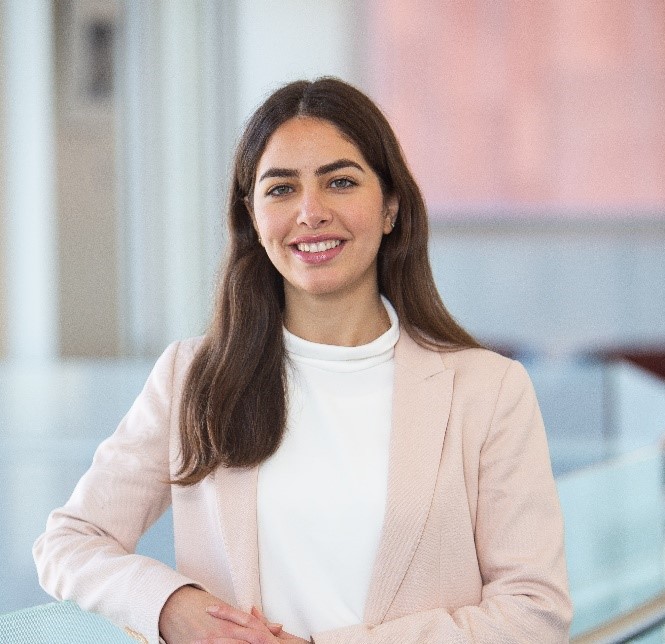 Can artificial intelligence help us in the fight against COVID-19?
Can artificial intelligence help us in the fight against COVID-19?
Farah Shamout, assistant professor emerging scholar in computer engineering at NYU Abu Dhabi, finds out.
Farah Shamout is an Assistant Professor Emerging Scholar in Computer Engineering at NYU Abu Dhabi, where she leads the Clinical Artificial Intelligence Laboratory. Her research expertise is in data science and machine learning for healthcare, data analytics for large-scale multi-modal data, and model interpretability. Her projects focus on real-world clinical problems to inform decision-making, including patient prognosis and diagnosis using electronic health records and medical imaging. Prior to joining NYU Abu Dhabi, Farah completed her doctoral studies (DPhil) in Engineering Science at the University of Oxford on the Rhodes Scholarship.
Artificial Intelligence for the Detection of Deterioration Among COVID-19 Patients
The spread of the coronavirus disease 2019 has led to a surge in patients presenting to the emergency department with respiratory illness. This overload, on an already strained healthcare system, emphasizes the need for automated triage that can support decision-making by predicting the risk of patient deterioration. Traditionally, early warning score systems have mainly relied on processing physiological variables, and do not leverage the vast amounts of imaging data that contain relevant information regarding the degree of illness. In our work, we developed an explainable artificial intelligence system that predicts the risk of deterioration by fusing information in chest X-ray images and routine non-imaging data. To ensure that the artificial intelligence system is clinically meaningful, computer scientists and machine learning engineers collaborated closely with radiologists and front-line physicians to define and design the tasks of the artificial intelligence system, as well as extract and curate the data from the hospital’s complex medical records. Based on that, we defined the risk for intubation, admission to the intensive care unit, or mortality within 24-96 hours as the system’s predicted outputs, at the time of patient assessment. Upon evaluation, the imaging deep learning system performed on par with two human radiologists with 3 and 17 years of experience. The best performance of the artificial intelligence system was also achieved by combining imaging and non-imaging information, illustrating the benefits of multi-modal learning in healthcare. Overall, this research highlights the potential of artificial intelligence in supporting decision-making especially in pandemic hot spots with limited resources.

Comments
3 responses to “Farah Shamout, NYU Abu Dhabi – Artificial Intelligence for the Detection of Deterioration Among COVID-19 Patients”